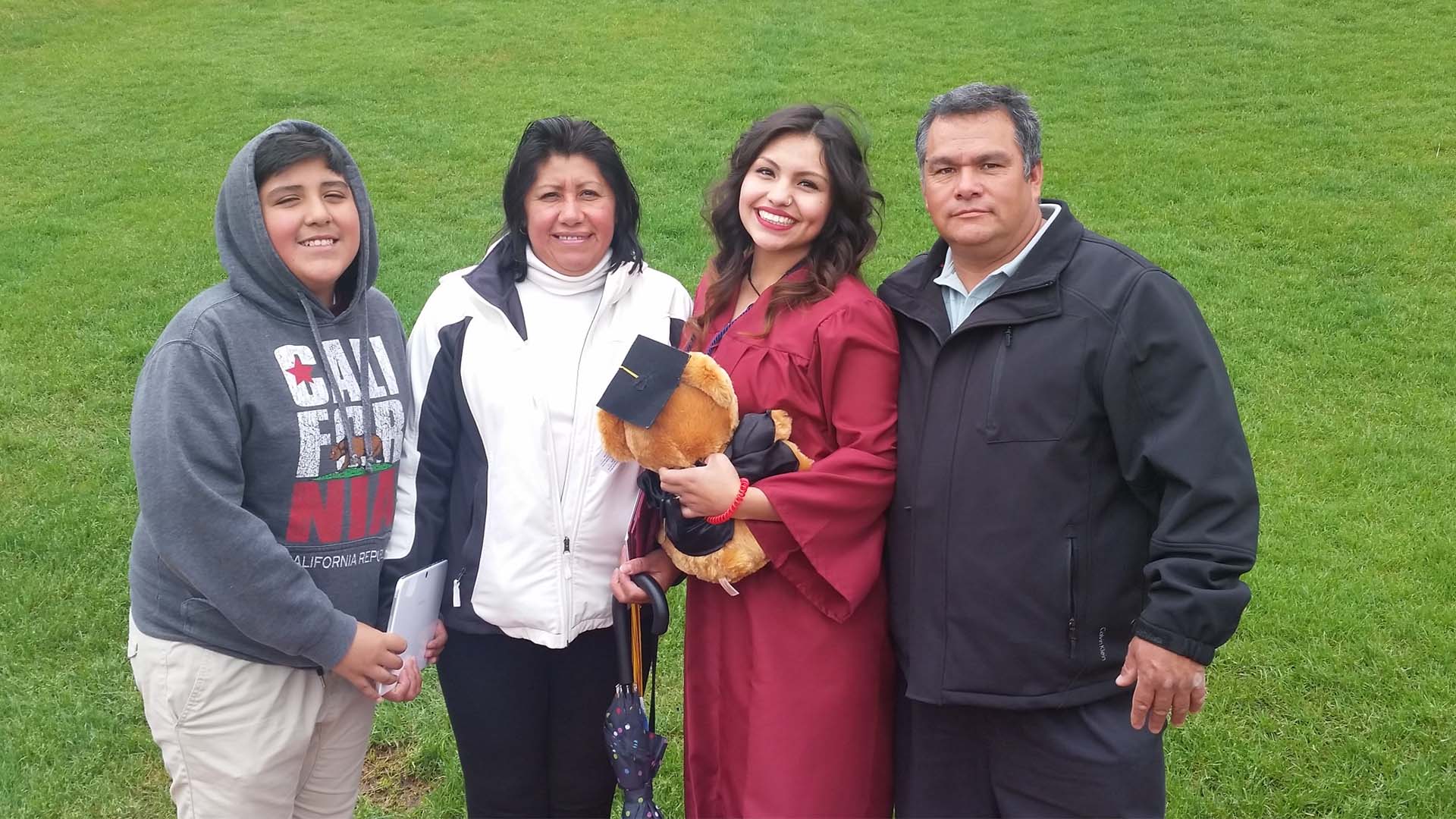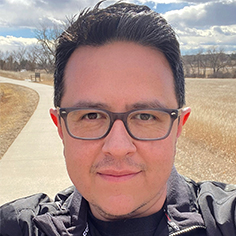
Alumni in Action
Andrea Loya draws from her own experience navigating the immigration process as a student to now help others find their own path.
Video by: CCA Dept. of Strategic Communications
With her associate and bachelor’s degrees under her belt, Andrea Loya looks back at her path from student to executive director, and envisions a completely different outcome for her life without the help of the Community College of Aurora.
Alongside the usual college challenges like long study nights, exams and early morning classes, Loya also encountered another set of obstacles – earning her associate degree, and becoming an American citizen, all while still in high school.
“I was born in Mexico City, and was brought (to the United States) by my parents when I was really young,” Loya said.
She began concurrent enrollment classes at CCA in 2010. She says the time she spent pursuing her degree gave her just enough time to change her immigrant status, and allowed her to go on to earn her Associate of Science degree in 2015.
“That was really the stepping stone to be able to do that. Without that opportunity, I think it would have been a lot more difficult, and I would not be where I am today,” Loya said. “It really pushed me to transfer to a four year university without the amount of loans that a lot of people have.”
Since then, she has gone on to earn her bachelor’s degree from MSU Denver, and is now pursuing her master’s degree in nonprofit management. But it is her career that has given her meaning, and put all of her education and life experience to good use. Loya is the Executive Director of Casa de Paz, a non-profit organization that helps individuals who have been released from the immigration detention center in Aurora, and helps them find their own paths after their release. She has even been featured in local media, highlighting her work.
“People are released every day without anywhere to go, and Casa De Paz helps that transition,” Loya said. She leads the bare-bones organization, taking on every role from HR to social media.
Loya understands the uncertain nature of being new to a country, and describes it as an isolating experience. She earned her own citizenship status through a U-Visa, which is set aside for certain victims of crimes. Because she was a minor, her parents also received citizenship status.
Add in more hoops to jump through for work permits and permanent residence requirements, in addition to thousands of dollars for application fees, she considers herself well versed in the process.
She is passionate about her work, and user own experience to help navigate others through legal and immigration challenges.
“I love what I do. I am an immigrant myself. I will always feel like I owe it to the immigrant community to continue giving and help those who are just like me.”
She hopes to pass down the drive to help others to her daughter. “The passion is to now have my daughter understand where she comes from, and that is what drives me to be here.”
She encourages others with similar paths to reach out to organizations who provide help and necessary services to immigrants, saying there are many more programs that provide support than a decade ago.
“Thankfully, there are a lot more opportunities and you just have that drive to look for them,” she said. “Don’t give up on it. It’s really important you achieve those dreams.”
With her professional and personal paths now clearly carved out, she strives to be an inspiration to others to use CCA as a stepping stone to something great.
“I think there are a lot of young people like myself who have these goals and dreams, but also have a lot of challenges,” she said.
“CCA provides these opportunities for students so that they can see that, yes, you have these aspirations, but have you explored all these other options, and given yourself a chance to think about what you really want to do?”

